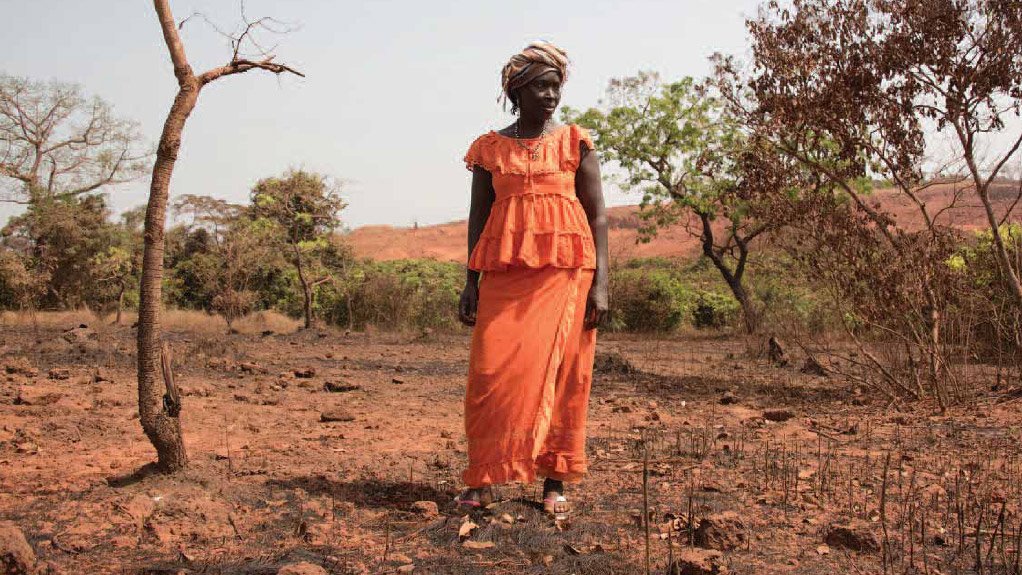- The Human Rights Impact of Bauxite Mining in Guinea1.10 MB
Bauxite mining in Guinea, one of the world’s poorest countries, is booming. Since 2015, the government of President Alpha Condé has transformed Guinea into a top global exporter, and the biggest to China, where the bulk of global aluminum is produced. Bauxite from Guinea now makes up a large proportion of the aluminum used across the world in car and airplane parts and consumer products like beverage cans and tin foil. With several more companies preparing to begin exports, Guinea, which has the world’s largest bauxite deposits, may soon become the largest global producer.
The Boké region, in northwestern Guinea, has been the center of much of the bauxite sector’s recent growth. The region now has dozens of open-sky bauxite quarries, whose red earth makes them hard to miss in Guinea’s often verdant landscape. Mining companies use heavy machinery to remove any earth covering the bauxite and dynamite blasting to break up the ore found underneath. A network of mining roads and railways, used to transport bauxite to ports, crisscross once isolated rural communities. Industrial ports, where bauxite is loaded onto barges or ships for export, are juxtaposed with the mangroves, paddy fields and local fishing ports that formed the backbone of riverside communities’ livelihoods.
Although Guinea’s bauxite boom provides much-needed tax revenue for the government, thousands of jobs, and profits to mining companies and their shareholders, it has profound human rights consequences for the rural communities that live closest to mining operations. Mining companies take advantage of the ambiguous protection for rural land rights in Guinean law to expropriate ancestral farmlands without adequate compensation or for financial payments that cannot replace the benefits communities derived from land.
Damage to water sources that residents attribute to mining, as well as increased demand due to population migration to mining sites, reduces communities’ access to water for drinking, washing and cooking. Women, who are primarily responsible for fetching water, are forced to walk longer distances or wait for long periods to obtain water from alternative sources. The dust produced by bauxite mining and transport smothers fields and enters homes, leaving families and health workers worried that reduced air quality threatens their health and environment.
Report by the Human Rights Watch
EMAIL THIS ARTICLE SAVE THIS ARTICLE ARTICLE ENQUIRY
To subscribe email subscriptions@creamermedia.co.za or click here
To advertise email advertising@creamermedia.co.za or click here











